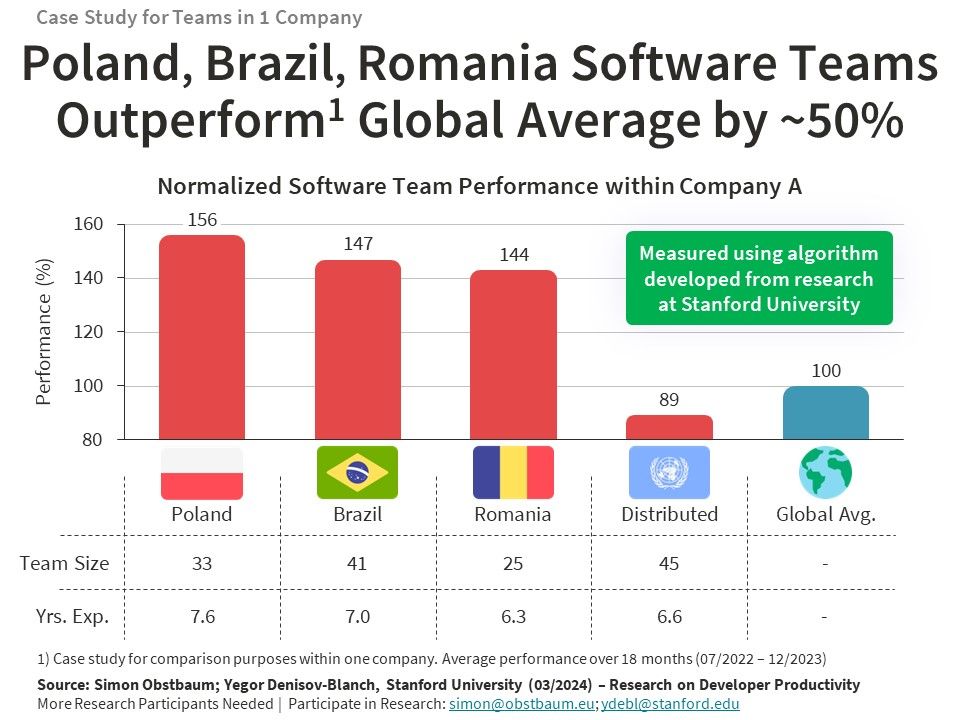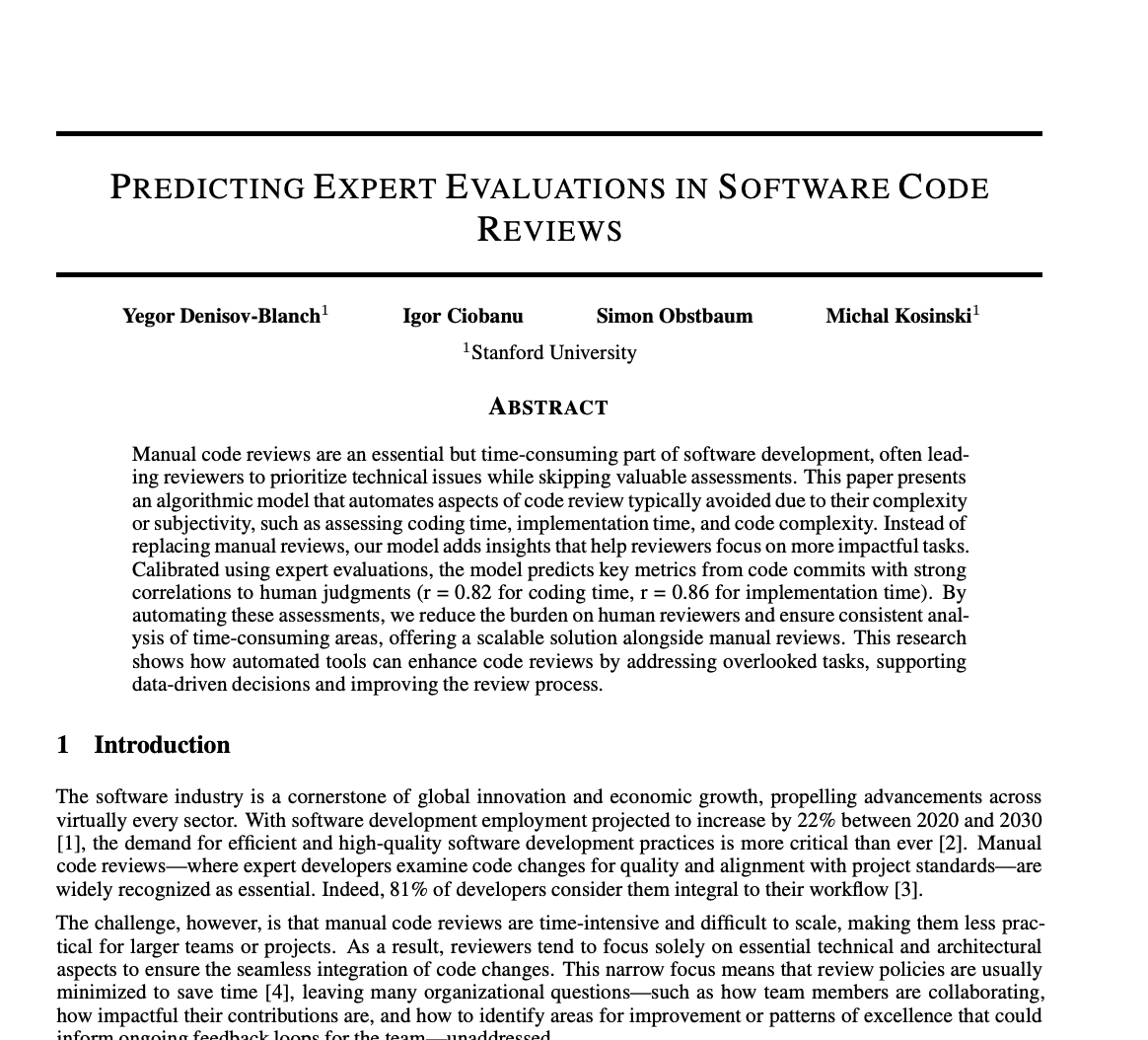One company participating in our study has its best teams in Poland, Brazil, and Romania.
🌐 These country teams surpass the global average by ~50%, according to our engineering productivity algorithm developed together with researchers from Stanford University.
This company operates large, autonomous teams globally due to having acquired other companies.
▶ This case study stands out because each country's team works independently but uses the same tech (JavaScript, Python) and works on products that are at a similar stage in their development and business growth.
✅ Measuring productivity at the team level is especially revealing. It encourages people to expand overall team output ("grow the pie") rather than just compete over existing resources and individual performance ("slice the pie").
When using data to make decisions about your software teams, it’s important to use objective metrics within the right context. However, be cautious with traditional 'productivity metrics' (e.g. Lines of Code, # of Commits, DORA Metrics), as they may not provide an accurate picture.
Traditional developer productivity metrics have several problems. They:
1️⃣ Don't analyze the source code written
2️⃣ Don’t reliably measure developer productivity
3️⃣ Are easily manipulated
4️⃣ Can incentivize undesirable behavior

✳ Methodology:
Using an algorithm developed from research conducted at Stanford University, we quantitatively assess developer productivity by evaluating the impact of commits on the software's functionality (ie. we measure output delivered).
We plug into our research participants’ Git environment and quantify the impact of the source code in every commit.
The algorithm generates a language-agnostic metric for evaluating & benchmarking individual developers, teams, and entire organizations.
▶ About Our Mission:
I’m part of a team conducting research at Stanford focused on quantifying software engineering productivity.
Our objective is to enable engineering teams to base decisions on factual data, rather than on gut feelings and internal politics.
Our research participants use our algorithm to make decisions about their team’s performance, outsourcing, work methods (home vs office), etc.

